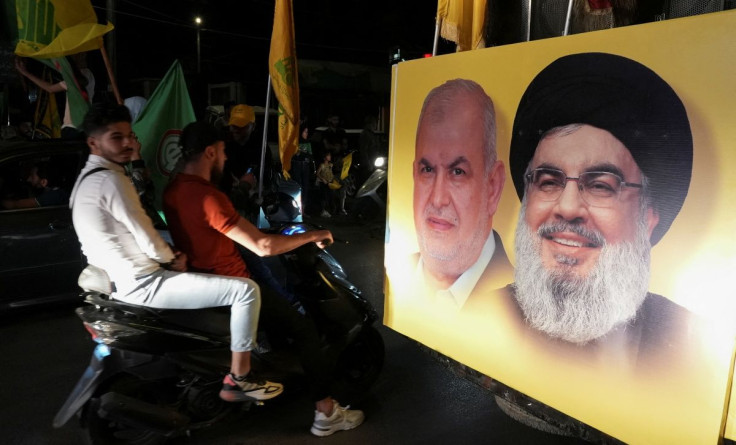Lebanon's Hezbollah, Allies Likely To Lose Parliamentary Majority, Sources Say

Iran-backed Hezbollah and its allies are likely to lose their majority in the Lebanese parliament after Sunday's election, three sources allied to the group said, in a major blow to the heavily armed faction that reflects anger with ruling parties.
Analysts said this could lead to political deadlock and conflict as deeply divided factions hash out powersharing deals over top state positions, risking further delays to reforms that are needed to address the economic crisis and unlock donor aid.
Opponents of Shi'ite Muslim Hezbollah including the Saudi-aligned Lebanese Forces (LF), a Christian group, made significant gains, as have reform-minded newcomers in the election, the first since Lebanon's devastating economic meltdown and a huge port explosion that rocked Beirut.
While results from Sunday's election have yet to be finalised, the senior sources said it was improbable Hezbollah and its allies would secure more than 64 of parliament's 128 seats, citing preliminary results.
Hezbollah and its allies won a majority of 71 when Lebanon last voted in 2018.
The sources spoke on the condition of anonymity because they were not authorised to speak on behalf of Hezbollah and its allies.
An LF spokesperson said Hezbollah and its allies had lost their parliamentary majority but that no one grouping now appeared to have a majority.
The result leaves parliament fractured into several camps and more sharply polarised between Hezbollah's allies and opponents, who are not currently united into a single bloc.
While the 2018 vote pulled Lebanon deeper into the orbit of Shi'ite Muslim-led Iran, Sunday's result could open the door for Sunni Muslim-led Saudi Arabia to exercise greater sway in Beirut, long an arena of its rivalry with Tehran.
© Copyright Thomson Reuters {{Year}}. All rights reserved.





















